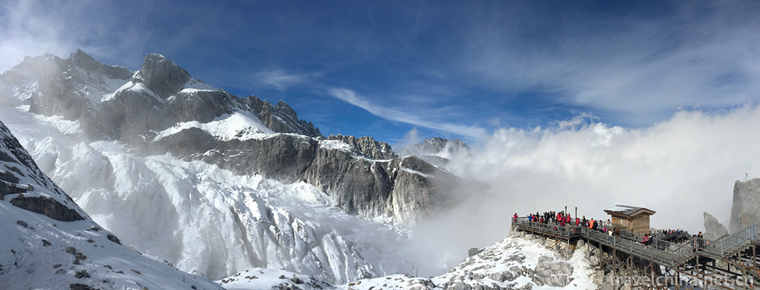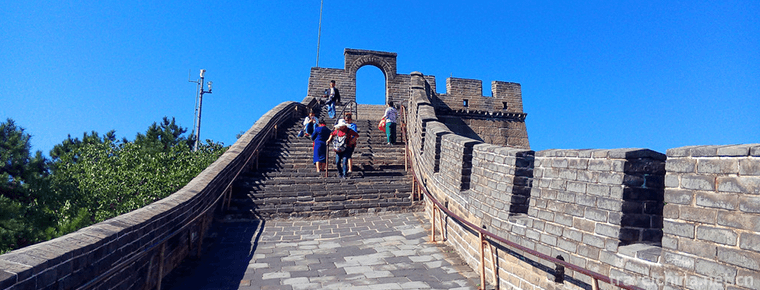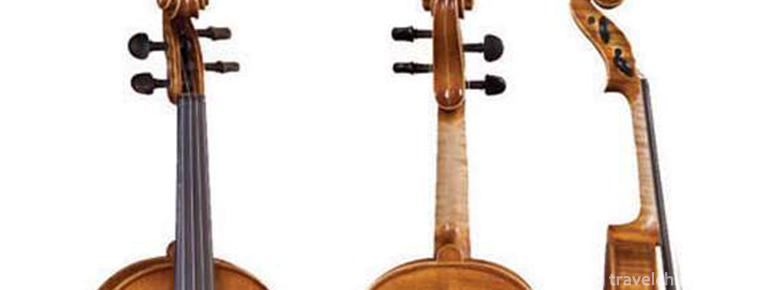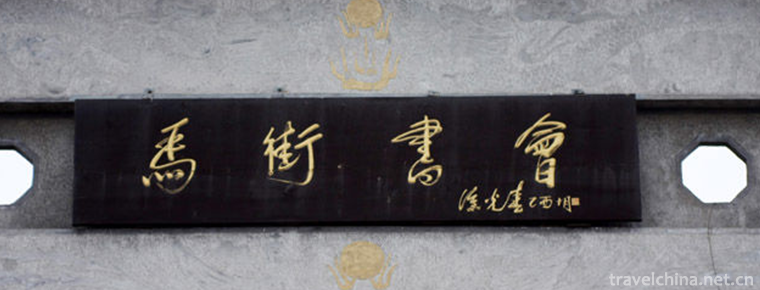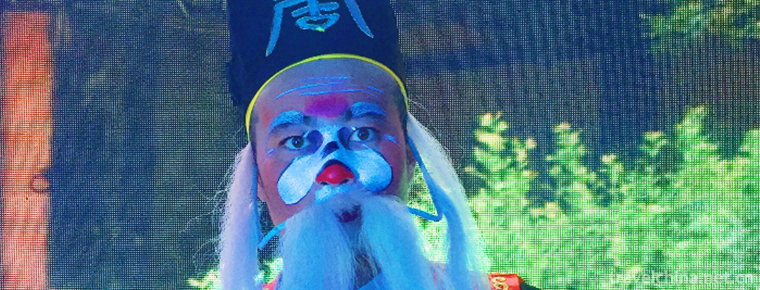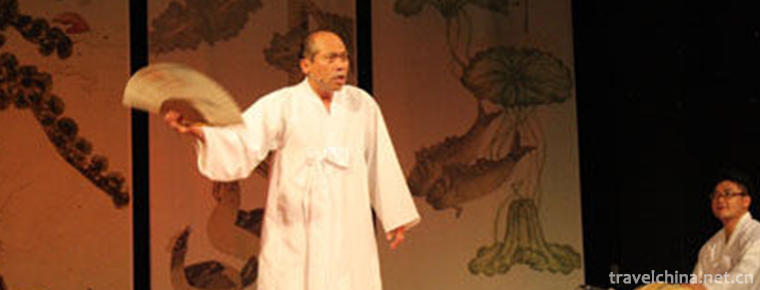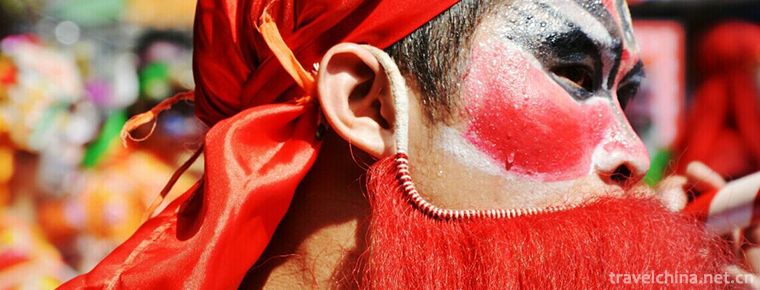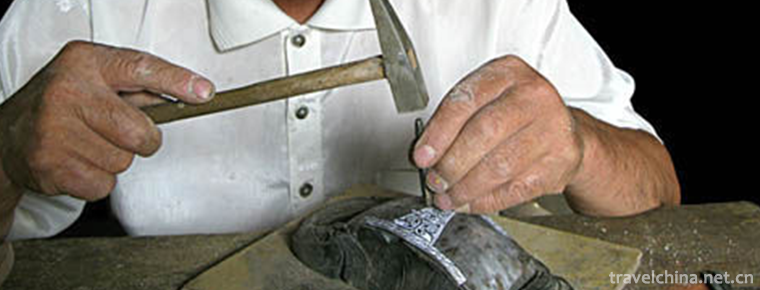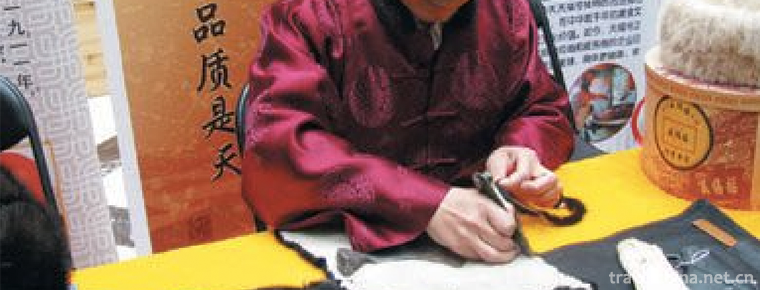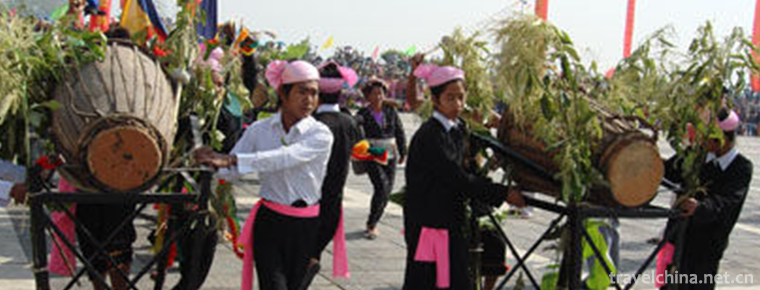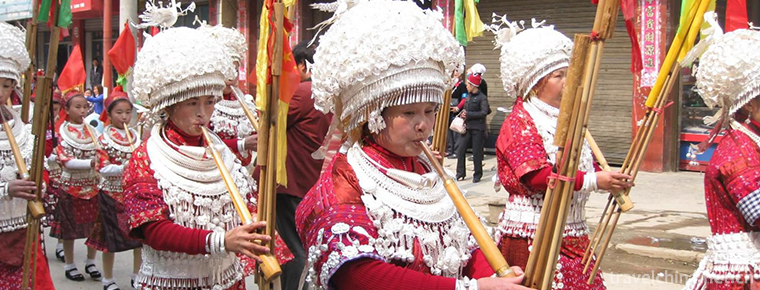Achi Wood Scraping of Lisu Nationality
Achi Wood Scraping of Lisu Nationality
"Aqimuguo" is a kind of self-entertaining dance for the masses, which is spread in the upper reaches of the Cangjiang River with Yezhi Township as the center. Its characteristics are that it does not need musical instruments, sings and dances from beginning to end. The music is composed of leading singers and accompanying singers. The dancers are divided into two groups, one leader in each group, and the rest of the choruses are very rich in content. They can sing from the myths and legends of ancient Honghuo to the production and life around them. They can inherit the lyrics left by their predecessors, or compile and sing by themselves improvisely. If the leaders of the men's and women's teams are equal, they often sing "eye-catching" for several days and nights.
On May 20, 2006, the Lisu Ajimu scraping was approved by the State Council of the People's Republic of China to be included in the first batch of national intangible cultural heritage list, the heritage number: III-35.
historical origin
"Aqimu Scrape", translated into "Goat's Song and Dance" in Chinese, is a kind of self-entertainment and self-entertainment song and dance popular among Lisu people along the Lancang River in Weixi County, Yunnan Province. Tongle Village in Yezhi Township, Weixi County, is the hometown of "Aqimu Scrape".
The origin and formation of Aqimu scraping are related to the Lisu people's semi-farming and semi-pasturing, especially their love of raising goats. The tunes are deep and far-reaching, such as the long song of goats, the melodious tone and the changeable dance steps. A Chi wood scraper is characterized by not using musical instruments, singing and dancing from beginning to end, combining music with lead singing and accompaniment singing. The two groups of dancers, male and female, each in a semicircle or in a straight line, singing while dancing, with one leading singer, all singing together in the last sentence. The dancing movements imitate the movements of goats, such as footsteps, swaying and rubbing of the upper body, swinging forward, looking up and looking back. Characteristic.
In primitive society, at the end of Lisu's hunting, people gathered together to sing and dance, to express group feelings, to express joy and good wishes after harvest of labor. According to Xiong Ziyi, the national representative inheritor of Aqimu Scrap, the early stage of Aqimu Scrap (clan society) only sang at sacrifices, and then gradually extended to the occasions of New Year's Day, marriage and funeral, and underneath work. This change clearly confirms the process of folk song culture from holy to secular.
Since the mid-1980s, Aqimu scraper has been widely praised by the audience since it started to walk out of the countryside and jump to the county and state capitals.
In September 1997, at the 40-year festival of culture and art held by Diqing Tibetan Autonomous Prefecture and adjacent Tibetan areas, Ajimu scraper won the gold medal. Since then, more and more people have appreciated the charm of Aqimu scraper. Aqimu scraper is the preferred program for all important performances. By the beginning of the 21st century, only some old people can dance in some traditional dance routines.
In contemporary times, Ajimu scraping is widely used in villages and villages in Yezhi Township, which has become the content of activating the cultural life of the people of all ethnic groups in mountainous areas and carrying out the construction of spiritual civilization. During the festival or harvest season, Lisu mountain villages in high mountains and deep valleys are full of bonfires and bright lights. People of all nationalities join hands and jump up "Achee Wood Scrape", singing the nature that gives human life, the sunshine, the moon, the stars and the stars that bring light to the earth, singing the happy life of Wugu Fengdeng and herds of cattle and sheep.
Dance features
Dance movements
The dance of "Aqimu Scrape" is a kind of dance action formed by extracting and processing the dynamic image of goats. It mainly adopts the method of simulation and symbolization. The imitation itself has its own purpose, that is, "Aqimu Scrape" uses the dynamic image of goats to express certain emotional, ideological and personality characteristics of human beings. The "Aqimu Scraping" dance is mostly a direct external performance. The movements are mainly composed of the jumping and swaying of feet, the swaying of the upper body and the receiving and receiving of the buttocks, the forward bending, the looking up and the looking back. The main movements are: jumping swing step, stamping step, forward stamping step, backward stamping step, sheep's head up, footboard opposite, heeling, stamping, shoulder touching, buttock touching, etc.
Dance formation
"Aqimu Scrape" dance formation usually has large circles, straight columns, semi-circular arcs, curves and so on. Usually the dance team turns clockwise. According to the concepts of venue and implication, the dance formation of "Aqimu Scrape" inevitably contains certain significance. The dance of "Aqimu Scrape" is very formative, and the general dance form is characterized by walking formations. Lisu people generally live in mountainous or semi-mountainous areas. The formation of Ajimu Scraping Dance Stadium was originally formed in such a mountainous area. It evolved from simple formation to complex formation.
distinguishing features of music
The dance of "Aqimu Scrape" has no accompaniment of musical instruments. From beginning to end, it dances on foot songs. The music is composed of lead singing and chorus. The whole music imitates the goat's song as the tone, and mostly appears as tremolo. Its tune can be slow and rapid. The beat of notes is frequent and large. Especially when the music begins, the first sound is long and long, and the tone is tortuous and changeable, giving people a sense of free stretching. It's like being on a high mountain pasture, like having a friendly conversation with a goat. The lyrics of "Aqimu Scrap" are very rich, involving all aspects of Lisu production and life. Such as the traditional marriage etiquette of the Lisu nationality, the establishment of a new family, the birth of children, the reproduction of human beings and family morality of the fashion education, including the teaching of sheep and other production skills.
Clothing characteristics
The costumes of the dancers are very unique. According to the record of "Visi Wenwenlu" written by Yu Qingyuan, when performing "Ashi Wood Scrape", the "men wear hairpins while wearing hairpins, and the braided wheat straw is embellished in the hair hall, often with sharp edges. Women pull hair hoops, collars, skirts and pants. This unique costume is rare nowadays. The Lisu people in Yezhi Town are the only ones who still keep "weaving wheat straw as a decoration in hairpin" in the performance of "Achimu Scraping".
Inheritance and Protection
Inheritance value
The essence of the cultural inheritance of "Aqimu Scraping" dance is the inheritance of Lisu cultural spirit. The root of Lili folk dance culture is the increasingly profound and sublimated Lili culture with the development of Lisu society. Ajimu scraping dance is the manifestation of life rhythm and the image of group leaping. The dance style of Ajimu scraping of Lisu nationality is thick, powerful, rough and bodybuilding, which embodies the character characteristics of Lisu nationality, such as honesty, simplicity, courage, enterprising, optimistic and open-minded. It also embodies the basic spirit of Lisu people's self-improvement, unity and progress, and breeds new creations corresponding to the times.
Heritage figures
Xiong Ziyi, male, Lisu nationality, born in Weixi County, Yunnan Province in 1941. The second batch of national intangible cultural heritage projects, the representative successor of Lisu Ajimu scraper, was declared by Weixi Lisu Autonomous County, Yunnan Province.
Li Biqing, male, Lisu nationality. The fifth batch of state-level intangible cultural heritage projects, representative inheritors of Lisu Ajimu scraper, were declared by Weixi Lisu Autonomous County, Yunnan Province.
protective measures
In 2008, the Weixi County Cultural Museum established a training center in the village public office where the staff of Tongle Village in Yezhi Town were relatively concentrated (mainly organizing festival activities and carrying out the inheritance work of "Ajimu Scrap" song and dance in the local area).
From 2011 to 2013, the Cultural Museum of Weixi County has established three training sites in Xinluo Village, Badi Township and Comp Township, Yezhi Township, respectively, to organize artists at all levels to carry on the inheritance of "Aqimu scraper", strive to cultivate new inheritance force, and further develop the archives and materials of "Aqimu scraper" such as singing and dancing forms, genres, lyrics, singing, inheritance personnel structure, singing and dancing costumes, singing and dancing legends. Emphasis on census work.
At the beginning of 2015, with the joint efforts of the competent departments at all levels, the Lisu "Ajimu Scraping" Interpretation Center was completed in Tongle Village, Yezhi Town. The Interpretation Center consists of Multimedia Electronic Exhibition hall, cultural tradition exhibition room and heritage activity center.
social influence
Important performances
On January 17, 2017, in Zhenpo Square, Badi Township, Weixi County, Lisu Achimu Scrape was displayed during the exhibition of protection and inheritance achievements of Lisu "Achimu Scrape" and the opening ceremony of the 7th Badi Township Ethnic Folk Literature and Art Festival.
On December 22 and 23, 2017, during the "Wide Time Festival in Weixi County and the 3rd Acer Scraping Festival in Yezhi Town", Lisu Acer Scraping was displayed.
Honorary recognition
In September 1997, at the 40-year festival of culture and art held by Diqing Tibetan Autonomous Prefecture and adjacent Tibetan areas, Ajimu scraper won the gold medal.
In 2009, Li Biqing's performances of "Aqimu Scraping Wine Song", "Aqimu Scraping Dance", "Shepherd Girl" and "Love Song Singing" won excellent prizes in the first Lisu folk original ecological song and dance performance.
In 2011, the National Song and Dance Troupe of Weixi County participated in the "New Song and New Dance Exhibition Competition" held by Diqing Prefecture, and its performance of "Ajimu Scrap" won the gold medal.

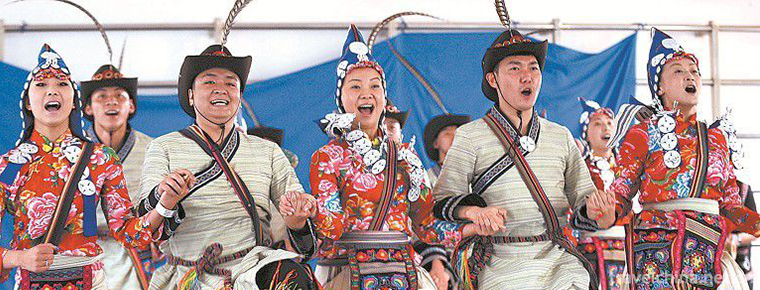
-
Yulong Snow Mountain
Yulong Snow Mountain is a snowy mountain group in Lijiang City, Yunnan Province.
Views: 156 Time 2018-10-17 -
The Badaling Great Wall
Juyongguan Great Wall is a famous ancient city along the Great Wall of Beijing and a national cultural relic protection unit. It is a national AAAA scenic spot assessed by Beijing Tourism Bureau.
Views: 317 Time 2018-12-09 -
Chaomong Ancient Bow String Music
Originated in Inner Mongolia grassland, Chaoer art, known as "cultural diamond", is the predecessor of horsehead art and the unique traditional and ancient musical instrument of Mongolian..
Views: 93 Time 2019-04-16 -
Ma Street book fair
The Majie Book Club is a grand Chinese folk music festival. Located 5 kilometers south of Baofeng County, Henan Province, it is a "pilgrimage site" for rap artists all over the country. Ever.
Views: 158 Time 2019-05-15 -
Eyebrow household
Eyebrow households, distributed in Shanxi, Shanxi, Shaanxi, Gansu, Western Henan and other provinces, also known as "Eyebrow Shao" or "confusion", are named for their euphemistic m.
Views: 87 Time 2019-05-31 -
Pansori
The main art of Korean folk art is Pan Suo Li, which appeared in the 18th century. At the beginning of the 20th century, it was introduced into China with the immigration of Korean nationality. The wo.
Views: 178 Time 2019-06-08 -
Puning Ying Song
Puning Yingge is a traditional folk dance style widely spread in Puning City, Guangdong Province. It was created and compiled by Yitang people during the reign of Qianlong in the Qing Dynasty. It has .
Views: 120 Time 2019-06-09 -
Lead tin carving
Lead and tin carving, a local traditional skill in Jingzhou City, Hubei Province, is one of the national intangible cultural heritage..
Views: 276 Time 2019-06-10 -
Making Skills of Sheng Xifu Leather Cap
Shengxifu leather cap production skills need to go through the whole process from matching, picking, blowing, brushing, flat leather, shaving, hand needle sewing to machine sewing, and finally complet.
Views: 134 Time 2019-06-14 -
Water Encouragement
Water drum dance is a kind of popular dance spread between the De'ang and Miao nationalities. It combines water, drum and dance to worship ancestors, pray for good weather and peace in villages. Howev.
Views: 140 Time 2019-06-15 -
Hulusheng Dance of Yi Nationality
Hulusheng Dance of Yi Nationality, the traditional dance of Wenshan Zhuang and Miao Autonomous Prefecture in Yunnan Province, is one of the national intangible cultural heritage..
Views: 104 Time 2019-07-12 -
The world is so big still meet you Cheng Xiang Tik Tok Songs 2020 Hot Songs
"The world is so big still meet you " is composed by htet Aung Lwin and sung by Cheng Xiang. It is the Chinese version of myanmar music "for Ma". It was officially released on Janu.
Views: 93 Time 2020-05-21
